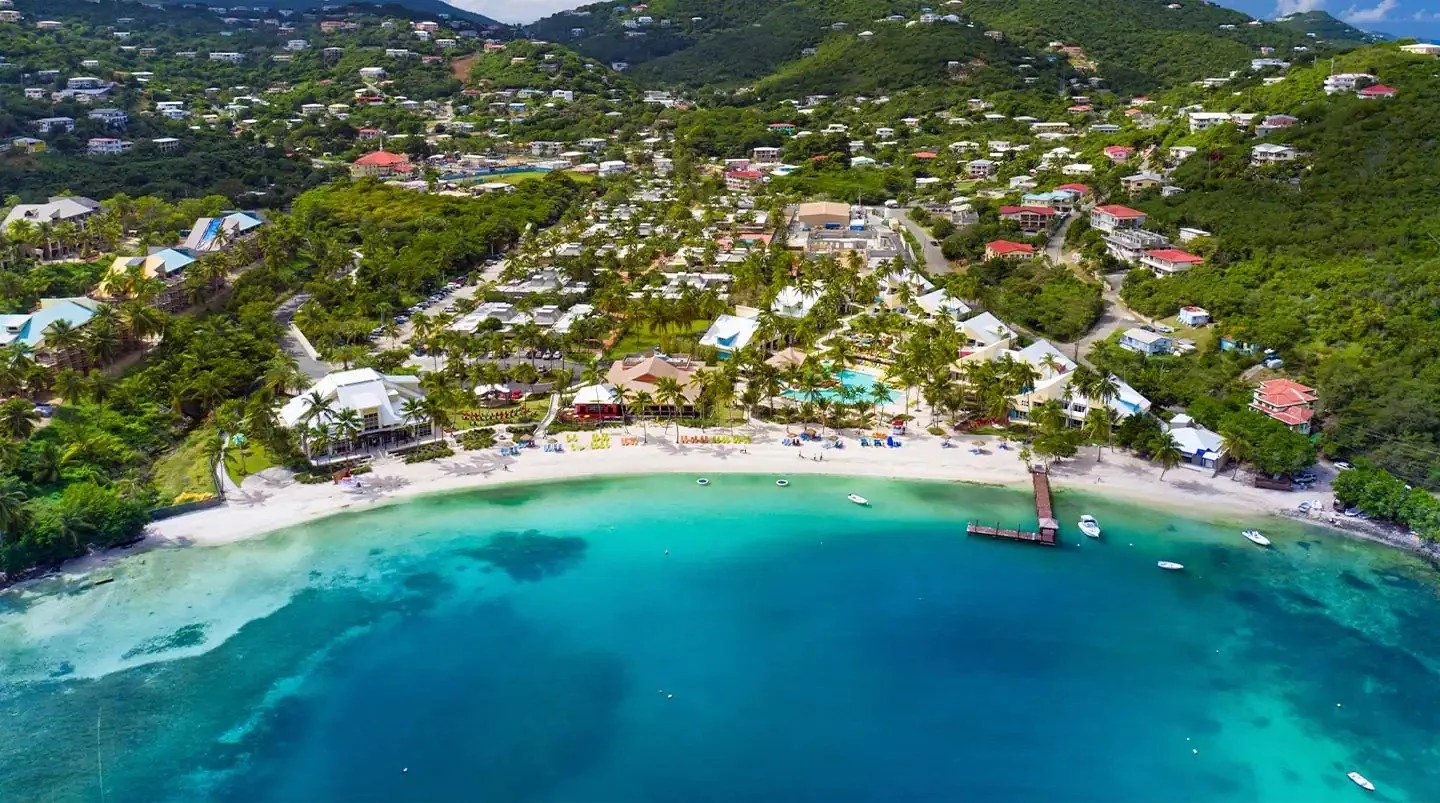Host Travel Agency Reviews: What to Know When Choosing an Agency
So you're thinking about becoming a travel agent? That's seriously exciting! But here's the thing—you don't have to figure it all out alone. Joining a host travel agency can be one of the smartest moves you make, giving you all the tools, training, and support you need without the headaches of starting completely from scratch. The catch? There are literally hundreds of host agencies out there, and picking the right one can feel totally overwhelming!
Think of it this way: choosing a host agency is like picking a business partner. You want someone who's got your back, shares your vision, and gives you the resources to actually make money. The wrong choice can leave you frustrated, underpaid, and stuck in contracts that don't serve you. The right choice? It can launch your travel business into something truly successful!
This guide breaks down everything you need to know about host travel agency reviews and what really matters when you're choosing an agency to join. You could be brand new to travel or maybe you've been selling trips for a while and want to make a switch, we've got you covered!
Here at MainStreet we offer a $99 Starter Membership and a Travel Plus membership for only $199! There’s no monthly or yearly fees, and no minimum booking requirements! We also have a high 70/30 commission split! Join today at no cost and start your new exciting career!
What Exactly Is a Host Travel Agency?
Before we dive into reviews and comparisons, let's make sure we're all on the same page about what a host agency actually does.
A host travel agency is basically a company that provides the infrastructure and support for independent travel agents to run their own businesses. Instead of getting your own accreditation numbers like IATA or CLIA (which can be expensive and complicated), you work under the host's credentials. They handle a lot of the back-office stuff while you focus on what you do best—selling travel.
Here's what most host agencies provide:
Access to preferred supplier relationships and better commission rates
Booking platforms and technology tools
Training programs and ongoing education
Marketing support and resources
Administrative assistance with things like commission tracking
Legal compliance and seller of travel licenses
A community of other agents to learn from
Think of it as renting an entire business infrastructure instead of building everything yourself. You're still an independent contractor running your own business, but you've got a whole support system backing you up.
Why Host Agency Reviews Actually Matter
You wouldn't buy a car without reading reviews, right? Same deal with choosing a host agency. Reviews from actual travel agents give you the real story—not just the polished marketing pitch.
When you read host travel agency reviews, you're getting insider intel on things like how responsive their support team is, whether they actually deliver on their promises, if their commission splits are fair, and how easy (or difficult) it is to work with them day-to-day.
Sites like Host Agency Reviews, Find A Host Travel Agency, and Reddit's travel agent communities are goldmines for this kind of information. You'll see patterns emerge pretty quickly—if multiple agents mention the same issues or rave about the same benefits, that tells you something important.
The Most Important Factors When Choosing a Host Agency
Commission Splits and Earning Potential
Let's talk money, because that's probably pretty important to you. Commission splits are how host agencies share the revenue from your bookings. Most agencies offer splits ranging from 60/40 to 90/10 in your favor, with some even offering 100% commission in exchange for monthly fees.
Here's the deal: a 70/30 split means you keep 70% of the commission and the host keeps 30%. Sounds simple, right? But there's more to it than just that percentage.
Some hosts offer tiered commission structures where your split improves as you hit certain sales thresholds. You might start at 70/30 but move to 80/20 or even 90/10 once you're booking $50,000 or $100,000 annually.
Don't just chase the highest split though. A host offering 90/10 but with weak supplier relationships might actually earn you less than a host with 80/20 and amazing preferred partnerships that give you override commissions.
Watch out for these commission red flags:
Splits below 60/40 (unless they're providing exceptional value)
Complicated commission structures you can't understand
Agencies that keep your commissions if you leave
Hidden fees that eat into your actual take-home pay
Monthly Fees and Startup Costs
Host agencies charge fees in different ways. Some have monthly fees ranging from $20 to $200, while others have annual fees or startup costs.
Typical costs you might see:
Startup/initiation fees: $0 to $2,000
Monthly fees: $0 to $100
Annual fees: $240 to $840
Training programs: $295 to $895
The lowest fee isn't always the best deal. Think about what you're getting for that money. A host charging $50/month but providing amazing technology, training, and support might be way better value than a "free" host that gives you basically nothing.
Training and Support Resources
This is huge, especially if you're new to the travel industry. The quality of training can literally make or break your success as a travel agent.
Look for hosts that offer:
Comprehensive onboarding programs for new agents
Access to supplier training from cruise lines, hotels, and tour operators
Ongoing education about destinations, products, and sales techniques
Mentorship programs pairing you with experienced agents
Live training sessions, webinars, and conferences
A searchable library of recorded training content
Ask potential hosts specific questions about their training: Is it mandatory or optional? Is it self-paced or scheduled? Do they charge extra for it? How often is content updated?
Technology and Booking Platforms
The right technology makes your job so much easier. Bad technology? It'll make you want to throw your computer out the window.
Essential tech tools to look for:
Booking engines and GDS (Global Distribution System) access
CRM (Customer Relationship Management) systems to manage client relationships
Commission tracking software
Marketing automation tools
Trip planning and itinerary builders
Mobile apps for booking on the go
Some hosts provide all of this included in your fees. Others might charge extra or require you to use your own tools. Make sure whatever they offer actually integrates well and doesn't require you to learn ten different systems.
Preferred Supplier Relationships
This is where host agencies really show their value. Because they aggregate the sales of all their agents, hosts can negotiate better commission rates and exclusive perks with suppliers.
Benefits of strong supplier partnerships include:
Higher commission percentages than you could get on your own
Lower sales thresholds to reach better commission tiers
Exclusive amenities for your clients (room upgrades, resort credits, etc.)
Access to FAM trips to experience properties firsthand
Direct relationships with Business Development Managers
Marketing co-op dollars to promote specific suppliers
Check if your potential host is part of major consortia like Virtuoso, Travel Leaders Network, or Signature Travel Network. These affiliations unlock even more benefits but aren’t necessary.
Ask to see their preferred supplier list. Do they work with the cruise lines, hotels, and tour operators you want to sell? Are you required to book only with preferred suppliers or do you have freedom to book anywhere?
Support and Communication
When things go wrong—and in travel, they will—you need a host that actually responds and helps you.
Questions to ask about support:
What are your support desk hours?
How quickly do you typically respond to agent questions?
Do you offer after-hours emergency support?
Can I speak to a real person or is everything automated?
How many support staff do you have for the number of agents?
Do you assist with client issues or do agents handle everything alone?
Read reviews specifically mentioning support quality. If you see complaints about slow responses, unhelpful staff, or getting left hanging with client problems, that's a massive red flag.
Red Flags to Watch Out For
Not all host agencies are created equal. Some are genuinely trying to help you succeed. Others? Not so much. Here are warning signs that should make you think twice.
Sketchy Commission Deals
Commission splits below 50% are a hard no. If a host is taking more than half your earnings, they better be providing incredible value—and honestly, they're probably not.
Also watch for hosts that keep your pipeline commissions if you leave. That's your money from bookings you made, and ethical hosts will pay you what you earned even after you move on.
Long-Term Contracts With No Escape Clause
Year-long contracts can be okay, but watch for multi-year agreements or contracts that make it really difficult or expensive to leave.
You want flexibility, especially when you're starting out. Look for hosts offering month-to-month arrangements or short-term contracts with reasonable termination clauses.
Restrictive Non-Compete Agreements
Some hosts try to limit what you can do after you leave—like saying you can't work with certain suppliers or even be a travel agent for a certain period. That's controlling and unfair.
Vague or Complicated Contract Terms
If you can't understand what you're agreeing to, don't sign it. Period. The contract should clearly spell out commission splits, fees, responsibilities, and how either party can end the relationship.
If something seems unclear, ask for clarification in writing—not just a verbal explanation. If the host gets defensive about your questions, that's a red flag right there.
Lack of Transparency About Fees
Hidden fees are the worst. Make sure you understand every single cost involved: monthly fees, transaction fees, training costs, technology fees, anything else they might charge.
Poor Communication and Professionalism
If they're slow to respond during the courting phase when they're trying to get you to join, imagine how bad it'll be once you're signed up.
Test their responsiveness. Send questions. See how long they take to answer and how helpful those answers actually are.
Pressure Tactics
Good hosts want agents who are good fits, not just warm bodies. If someone's pushing you to "sign now before this offer expires" or making you feel rushed, pump the brakes.
Take your time. Talk to multiple hosts. Compare your options. Any host worth joining will give you space to make the right decision.
How to Research and Compare Host Agencies
Here's your game plan for actually choosing the right host.
Step 1: Know What You Want
Before you start researching, figure out your priorities. Are you focused on cruises or land packages? Do you need a lot of hand-holding or are you pretty self-sufficient? What's your budget? What kind of income do you want to make?
Having clarity on this makes everything else easier.
Step 2: Create a List of Potential Hosts
Start with 5-10 hosts that look promising. Use sites like Host Agency Reviews and Find A Host Travel Agency to filter by the criteria that matter to you.
Step 3: Read Reviews From Multiple Sources
Check out Host Agency Reviews, Reddit's r/travelagents, Facebook groups, and any other places where agents share honest feedback.
Look for patterns. One negative review isn't a deal-breaker, but if the same complaints come up repeatedly, pay attention.
Step 4: Download a Comparison Checklist
Host Agency Reviews offers free comparison spreadsheets where you can track commission splits, fees, training, technology, and other factors for each host you're considering.
This keeps everything organized so you can actually compare apples to apples.
Step 5: Schedule Interviews
Don't just fill out an online form and sign up. Get on the phone or Zoom with representatives from your top choices.
Ask hard questions. See how they respond. Trust your gut about whether this feels like a good partnership.
Questions to ask during interviews:
How long have you been hosting agents and how many do you currently host?
What's your commission split and fee structure, including any hidden costs?
What training and ongoing education do you provide?
What technology platforms do you offer?
Which consortia are you affiliated with?
Can I see your preferred supplier list?
What kind of support do you provide and what are your response times?
Can you provide references from current agents I can speak with?
What happens to my commissions if I leave?
What are the contract terms and how can either party end the agreement?
Step 6: Talk to Current and Former Agents
Ask for references and actually call them. Ask about their experience, what they love about the host, what frustrations they've had, and whether they'd recommend joining.
If possible, also find agents who've left and ask why they made that decision.
Step 7: Review the Contract Carefully
Once you've decided on a host, read every word of that contract before you sign. Better yet, have a lawyer who specializes in travel industry contracts review it.
Make sure it matches what was promised in your conversations. If something was important to you, get it in writing.
Host Agency vs. Franchise vs. Going Independent
You might be wondering if a host agency is even the right choice, or if you should consider other options.
Host Agency: You work under their accreditation, share commissions, but build your own brand. Good for most new and mid-level agents. Lower startup costs and more flexibility.
Travel Franchise: Higher upfront investment (often $10,000+) but you get an established brand name, turnkey systems, and sometimes lead generation. Better for people wanting a full-time business and who value brand recognition.
Fully Independent: You get your own accreditation, keep 100% of commissions, but handle everything yourself. Best for experienced agents with established client bases who can meet supplier volume requirements on their own.
For most people starting out, a host agency offers the best balance of support, resources, and earning potential without requiring huge upfront investments.
Top-Rated Host Agencies to Consider
While we can't tell you which host is definitively "the best" (because that depends on your specific needs), here are some consistently well-reviewed options to research.
MainStreet Travel Agency: We have a $99 starter membership, no monthly or yearly fees, and no minimum booking requirements!
Yeti Travel Agency: A great starter agency like MainStreet! They have a great 70/30 commission split as well as a $99 membership!
Remember to do your own research on these and any others you're considering. What works great for one agent might not be the best fit for you.
Questions New Agents Often Ask
Do I need experience to join a host agency?
Nope! Most hosts welcome brand-new agents and provide training to get you started. Some hosts specialize in working with beginners, while others prefer agents with some experience.
What's the difference between IATA and CLIA, and do I need them?
IATA (International Air Transport Association) is mainly for agencies booking a lot of air travel. CLIA (Cruise Lines International Association) is for cruise bookings. When you join a host, you work under their credentials, so you don't need your own.
How long does it take to start making money?
That varies wildly depending on how much time you invest, your network, your sales skills, and your niche. Some agents make their first commission within weeks; others take several months to build momentum. Most hosts recommend having 6-12 months of savings since income can be irregular at first.
Can I work with multiple host agencies?
Some agents do this, but it's complicated. Most host contracts address this, and you need to be very careful about conflicts of interest and which host gets credit for which bookings. Generally, it's better to find one good host and focus your energy there.
What if I don't like my host agency after I join?
If you've done your research and it's still not working out, most agents can switch hosts. Check your contract terms for how to terminate the relationship and what happens to your pipeline commissions. Then use what you learned to choose better next time.
Do I need to pay for my own errors and omissions insurance?
Some hosts include this in their fees; others require you to carry your own. E&O insurance protects you if something goes wrong with a booking and a client sues. It's pretty important to have.
How do I know if a host agency is legitimate?
Check if they're accredited with industry organizations like IATA, CLIA, or ARC. Look for their seller of travel licenses in required states. Read lots of reviews. Ask for references. If something feels off, trust that instinct.
What's the deal with MLM travel companies?
Multi-level marketing travel companies focus more on recruiting other agents than actually booking travel. They often have poor commission splits and make money off training/membership fees rather than travel sales. Legitimate host agencies make money when you book travel, not from recruiting.
Making Your Final Decision
Choosing a host agency is a big decision, but it doesn't have to be overwhelming if you approach it systematically.
Here's your decision-making framework:
Start with commission splits and fees—these directly impact your earning potential
Evaluate training and support, especially if you're new to travel
Consider technology and whether it makes your job easier or harder
Review supplier partnerships and whether they align with what you want to sell
Read lots of reviews and talk to current agents
Interview your top 3-5 choices
Check references and trust your gut
Review contracts carefully before signing
Remember, this doesn't have to be forever. Many successful agents start with one host, learn the business, build their client base, and then either stick with that host or eventually move to a different arrangement that better fits their evolved needs.
The most important thing is choosing a host that aligns with your goals, supports your growth, and treats you fairly. With the right partner backing you up, you can build an incredible travel business doing what you love—helping people create amazing memories through travel!
Start Looking for Your New Agency Now
The travel industry is booming, and there's never been a better time to become a travel agent. But success doesn't happen by accident—it happens when you make smart decisions from the start, and choosing the right host agency is one of the most important choices you'll make!
Take your time with this decision. Do your research. Ask questions. Read reviews. Trust your instincts. The perfect host agency for you is out there, offering the exact combination of support, resources, commission structure, and culture that will help you thrive!
Don't let decision paralysis stop you from moving forward though. At some point, you've got to take that leap. Use the information in this guide to make an informed choice, then dive in and start building your travel business. You've got this!
And remember—the best host agency isn't necessarily the biggest or the one with the fanciest marketing. It's the one that fits your specific needs, supports your goals, and helps you succeed in selling the travel you're passionate about. Start reaching out to potential hosts today, schedule those interviews, and take the first step toward your exciting new career as a travel agent!
The world is waiting, and your future clients need someone knowledgeable and passionate to help them explore it. That someone could be you—and the right host agency will help you get there faster than going it alone. Now get out there and start your research. Your travel agent journey begins now!













